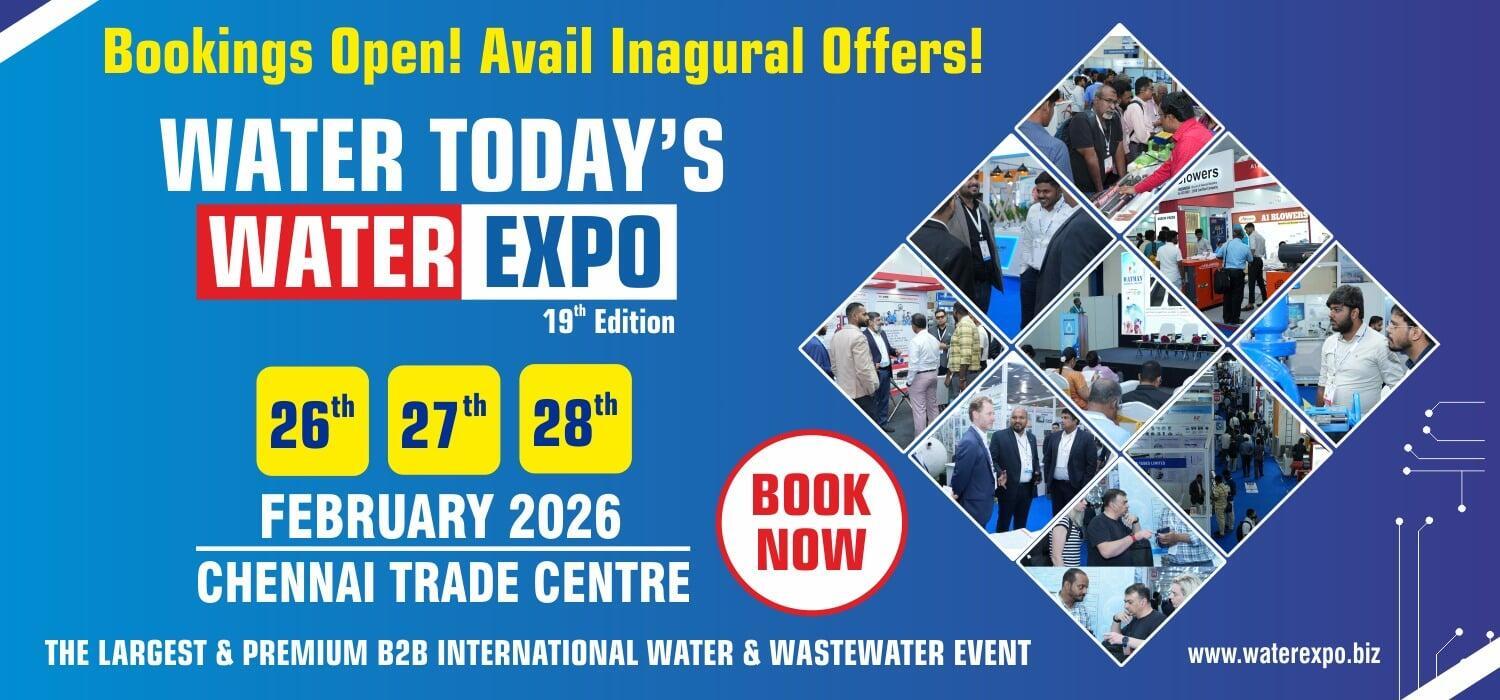India’s burgeoning water challenges—rooted in rapid urbanisation, population growth, and climate unpredictability—demand a strategic shift from traditional reactive systems to smart, data-driven solutions. Digitalisation, through technologies like IoT-enabled sensors, AI analytics, SCADA systems, and smart metering, offers this shift by enabling real-time monitoring, predictive maintenance, and more efficient water governance.

A notable India-specific success story is Delhi Jal Board’s (DJB) Smart SCADA & PNMS implementation in Pitampura, where remote field sensors and RTUs integrated with a Pipe Network Management System (PNMS) provided real-time monitoring of hydraulic health and equitable water distribution, significantly reducing non-revenue water across multiple District Metered Areas (DMAs).
Similarly, in Bengaluru, over 3,000 IoT-enabled smart water meters were installed for real-time usage tracking, which helped curb water losses and improve operational efficiency. Meanwhile, Chennai’s Smart City initiative is enhancing water management by deploying electromagnetic flow meters across residential and commercial buildings (targeting 90% coverage by 2025–26), restoring lakes for groundwater recharge, and modelling water balance using the “City of 1,000 Tanks” approach.
These digital interventions deliver tangible benefits:
- Enhanced visibility into water distribution networks and quality.
- Reduction in non-revenue water and energy-saving in operations.
- Proactive maintenance via AI-led anomaly detection.
- Foundations for integrated urban water governance through digital twins and centralized control.
However, scaling these solutions across India’s water infrastructure necessitates addressing challenges such as funding for digital upgrades, upskilling the workforce, integrating legacy systems, and safeguarding cybersecurity.
Looking ahead, one avenue to accelerate digital adoption across India’s water sector is participation in industry events like Water Today’s Water Expo 2026 (Chennai) from 26–28 February 2026 at the Chennai Trade Centre. This premier water and wastewater exhibition—with hundreds of exhibitors and thousands of visitors—serves as an invaluable platform for showcasing technologies, networking with municipalities, contractors, and industrial buyers, and exploring B2B opportunities in domains such as sewer infrastructure, effluent treatment, and environmental services.
Conclusion
Conclusion
Digitalisation presents a transformative opportunity to address India’s water issues by shifting from reactive interventions to proactive, analytical, and resilient water management. Indian cities like Delhi, Bengaluru, and Chennai are already charting a promising path with smart metering, sensor networks, and integrated city-scale modelling. To scale these innovations across the country, platforms like Water Expo Chennai 2026 are pivotal—they connect technology providers with industry leaders, municipal planners, and implementation partners.
Mark your calendars for 26–28 February 2026, and consider attending or exhibiting at the Water Expo to play a direct role in India’s water future—showcasing solutions, cultivating partnerships, and accelerating the digital transformation of water management nationwide.

